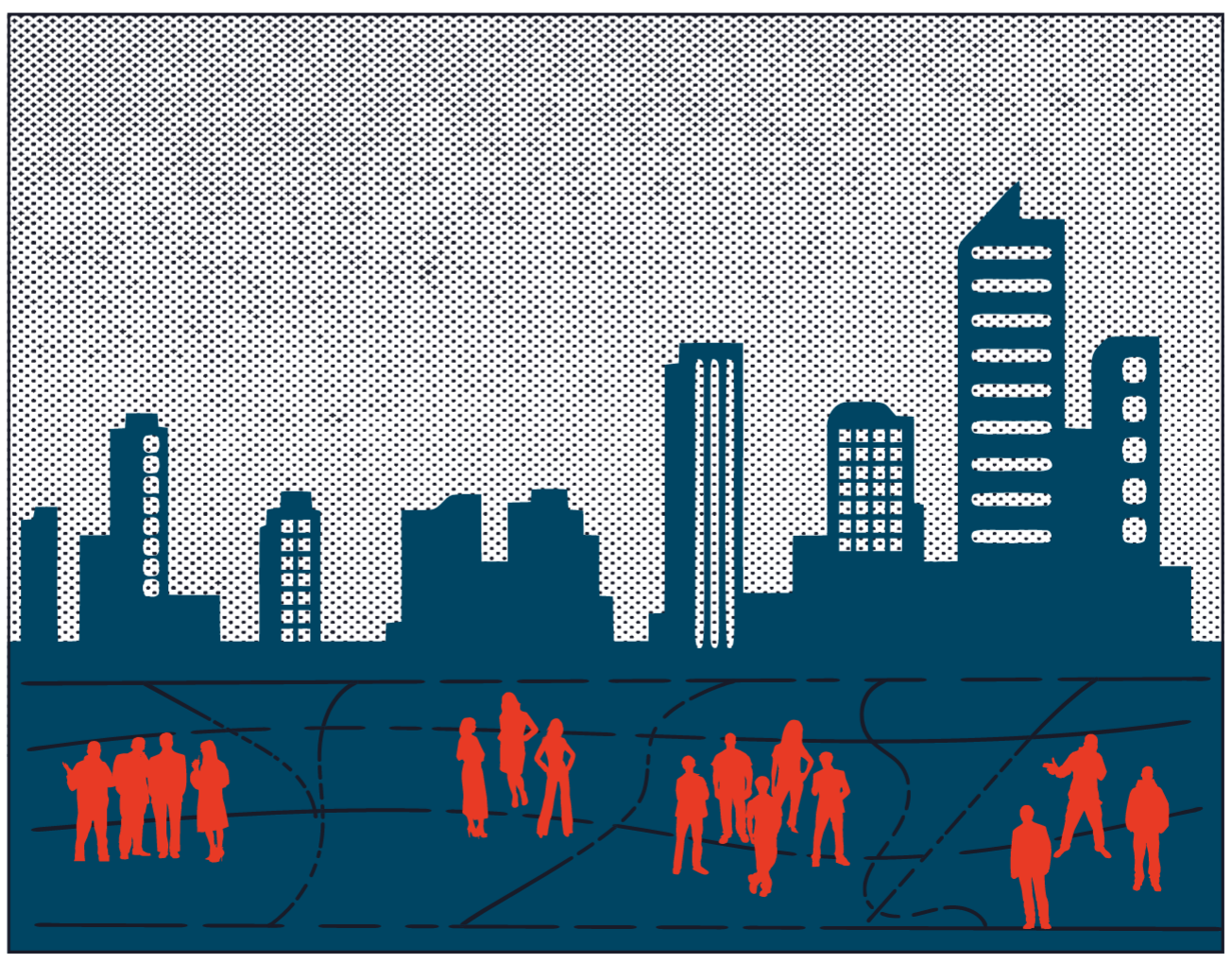#ExposeFakeClinics: Discussing Reproductive Health Care
#ExposeFakeClinics:
Discussing Reproductive Health Care
In Fall 2017, the Socialist Feminist Committee of Pittsburgh DSA launched a local Expose Fake Clinics campaign to spread information about crisis pregnancy centers in the Pittsburgh area. We joined a national campaign driven by the Abortion Access Hackathon and Lady Parts Justice League, along with over 50 partner organizations across the country, ranging from Arkansas Abortion Support Network to Austin NOW to Reproaction.
Crisis pregnancy centers (CPCs) are obstacles to comprehensive reproductive health care that thrive thanks to gaps in our health care system and anti-abortion misinformation. Though they advertise themselves as locations to receive free services, they truly function as anti-abortion counseling centers. Their agenda is to pressure people to carry a pregnancy to term, and they use a number of different tactics to accomplish this goal.
CPCs open near and mirror the appearance of real abortion clinics. They perform medically unnecessary ultrasounds, and use them to coerce patients. Many are not medically licensed, and give misleading pregnancy-related information, such as telling patients to wait several weeks before scheduling an abortion, and using debunked studies on the effects of abortion services. Such practices delay access to legitimate health care, increase the cost of services, and block pregnant people from making fully informed decisions about their care.CPCs have vastly increased in number in the last twenty years, significantly outnumbering real abortion providers. Many states fund CPCs under the guise of family assistance and religious outreach, while religious programs privately fund others. Meanwhile, actual abortion and reproductive health care providers struggle to stay open.
A Reproductive Justice Analysis
As our committee explored the issues surrounding health care access, we determined a reproductive justice analysis was necessary to accurately connect the topic to every social issue that affects people seeking health care. The concept of choice alone was insufficient, and a range of social justice issues connected to the topic of reproductive health.
The SisterSong Women of Color Reproductive Justice Collective coined the term “Reproductive Justice” in 1994. They defined it as “the human right to maintain personal bodily autonomy, have children, not have children, and parent the children we have in safe and sustainable communities.” A Reproductive Justice analytical framework requires studying power systems, addressing intersecting oppressions, centering the most marginalized, and building coalitions to work across issues and identities.
We use this framework to address the topic of reproductive health care resources. CPCs impose upon and obstruct an individual’s right to maintain personal bodily autonomy. They also take advantage of many people’s lack of accessible health care options, which has a greater impact on marginalized groups, namely people of color.
Our reproductive justice analysis requires that we recognize a wide array of social justice issues and inequalities that affect access to comprehensive health care. As we engage with others regarding CPCs, we strive to move beyond the language of choice to acknowledge the interconnectedness of issues affecting people’s care. For example, racial disparities in the ability to obtain comprehensive reproductive health care are rampant across the U.S. As a result, black mothers are over three times more likely to die from complications during pregnancy and childbirth than white mothers.
Among the additional issues we address in our conversations about fake clinics are a lack of affordable child care, prenatal care, and paid sick leave; opportunities to work for a livable wage; the quality of early childhood education; freedom from personal and state violence; the availability of public transportation; and a disparity between urban and rural areas in the number of facilities offering comprehensive reproductive health services. We also discuss Medicare-for-All and the exorbitant cost of healthcare in the United States.
Exposing Fake Clinics
Our primary goal is to help people learn how fake clinics act as obstacles to comprehensive reproductive health care. To accomplish this, we spread information in several ways. Because CPCs thrive by dominating search results for abortion services, our first step was creating a website. We aimed to help local people learn what to avoid as soon as they begin seeking reproductive health care.
The more our site is shared and clicked, the higher it appears in search results, so we hosted a website launch party to kickstart traffic. The party featured a photo booth where people could dress up in disguises with a sign that read, “Fakes Recognizing Fakes.” We encouraged people to increase the site’s visibility and link our local efforts to the national campaign by sharing their photos on social media using the hashtag #ExposeFakeClinics. In the week after the party, the site received 1,500 visits. Now, when patients search for abortion services in the area, our website appears near the top of the results, alongside the misinformation distributed by CPCs.
Simultaneously, we also created pamphlets with information about fake clinics: what they are, how to spot them, and where people can go instead to get services they need. Two local artists contributed to this effort, with one designing the pamphlet, and the other creating an informational comic. At our committee and chapter meetings throughout the year, we solicited members to circulate these pamphlets around the city, including coffee shops, libraries, and residence halls. Essentially, anywhere and everywhere that people might see them.
Our next step was street canvassing, which involves standing outside CPCs and initiating conversations with patients and passersby about the reproductive health care people deserve. Our street canvassing campaign focuses on two local CPCs, Women’s Choice Network and Birthright, both of which target students at the University of Pittsburgh and Carnegie Mellon University. These CPCs lure students to their facilities by promising free ultrasounds and STD testing just a few blocks away. We combat these subversive tactics by arming people with the facts. By speaking with people on the street and sharing our pamphlet, we help them learn to identify and avoid CPCs. We also alert people to legitimate reproductive health care options, and share ideas about how to take action against CPCs in the area and support access.
Simply disrupting the quiet presence of these fake clinics has been surprisingly impactful. The CPCs we visit are located on streets that get significant foot traffic, especially from college students, but otherwise have inconspicuous signage and attract little attention. One clinic is located on the ground level of an apartment complex. After politely asking us to leave the premises, the landlord informed us that the clinic had promised it would not attract protesters as part of the unofficial terms of their lease. In fact, before our canvassing efforts, many tenants were unaware they shared space with a fake clinic. Some have since disclosed to us that the CPC has been a topic of conversation at tenant association meetings.
The other clinic we visit is located in an office complex and shares an entrance with numerous other organizations. Again, many workers were unaware they shared space with a CPC. Agitating these tenants and pressuring the landlords who allow these places to operate are part of our ongoing efforts to shut down these imposters. The fact that so many tenants who share spaces with the fake clinics are oblivious to their presence demonstrates not only how CPCs thrive in the shadows of deception and ignorance, but also our campaign’s ability to expose them and their subversive tactics.
Coalition Work
Our chapter is working with our local abortion fund and independent reproductive health clinic, as well as other medical funds in the state. Last year, our committee raised over $12,000 for Western PA Fund for Choice, whose funds go directly to patients to pay for transportation, childcare, 13lodging, and medical costs for abortion services. We gathered these funds throughout the year, namely with fundraisers in April and December. These fundraisers also provided a platform to raise awareness about the cost of abortion, how the U.S.’s lack of free childcare and paid sick time affects people, how transportation issues serve as an obstacle to health care, and how CPCs get in the way.
As we continue our anti-CPC work, we are also building Pittsburgh DSA’s organizational capabilities and relationships. Because reproductive justice is critical for the successful implementation of socialism, DSA must organize a vigorous program around reproductive health care access and the issues important to those it affects most. Our anti-CPC work is one piece of this program. Until reproductive justice is secured for everyone, we’ll continue finding new ways to fight for bodily autonomy, fully informed choices regarding reproductive health, and the freedom to parent in safe and sustainable communities.
To learn more about the campaign to expose fake clinics, contact Pittsburgh DSA’s Socialist Feminist Committee at: socfem@pghdsa.org
You can also follow them on…
Facebook: Philly DSA Socialist Feminist Working Group
Twitter: @PhillySocFem
Instagram: @PhillySocFem
Website: socfemphilly.wordpress.com / exposefakeclinicspgh.com


